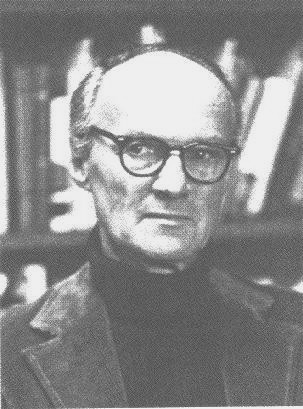| Profile | Major Works | Resources |
Tibor de Scitovsky, 1910-2002


The Hungarian-born Tibor de Scitovsky is another prodigious product of Robbins's LSE, Scitovsky made his mark in welfare economics - but a mark of various hues. Scitovsky is the author of the "Community Indifference Curve" (CIC) (1941, 1942) which is a remarkable analytical device that can be superimposed upon a production possibilities frontier and thus help one visualize the Paretian conditions for optimality. However, in those same papers, he also unveiled what became known as the "Scitovsky Reversal Paradox". What he demonstrated was that if an allocation A is deemed superior to another allocation B by the Kaldor compensation criteria, by a subsequent set of moves by the same criteria, we can prove that B is also superior to A. The Scitovsky paradox threw much of welfare theory into confusion during the 1940s and 1950s.
Like Abba Lerner, Tibor Scitovsky embraced the Keynesian Revolution from a welfare perspective. His 1951 book integrated the analysis of "power asymmetries" in different markets with macroeconomics, basing a theory of inflation on this concept (also 1978). He also ventured deeply into international trade theory, including the tariffs, economic integration, import-substitution policies, balance of payments problems and economic development (e.g. 1958, 1969, 1970).
Starting around 1960, Scitovsky returned to "welfare" theory, but now with a different tone. Welfare, Scitovsky argues, has been confused with "consumption" and consequently "growth", but human progress must be measured qualitatively as well as quantitatively. Many societies, he claims, can attain better quality consumption with fewer resources while other, with numerous resources, only achieve lower quality consumption. Thus, argues Scitovsky, we should be careful when making welfare comparisons for quality matters. Scitovsky has struggled over the years to give us a precise definition of "quality", but it has generally been related to "joy" in consumption. Certain types of consumption, he argues, are "joyless", others "joyful" and the difference between them is a composite of several things of which challenge, risk and a sense of accomplishment would be major factors.
Scitovsky has extended his ideas into social critique: specialization has taken much of the joy out of work, he has argued, and consumption in American society (more than any other) has placed far too great a stress on comfort and safety in consumption and living, thereby depriving consumption activities of their challenging, risky and difficult elements, i.e. "joy". But given the innate "need" for such joyful, risky activities in human beings, thereby we can divine the cause of certain types of human behavior (e.g. gambling, dangerous sports, crime, etc.). The "cure" for a joyless society, Scitovsky maintains, is to "educate" our consumption so as to infuse it with those joyful elements. Without such education, we are apt to surrender decisions on the quality of consumption to producers and these tend to aim for what is most amenable to mass production and comfort.
While Scitovsky's arguments may seem daring, he stands in good company: Knight, Veblen, Keynes and Galbraith, are but a handful of the many other prominent economists who have stressed the need to think carefully about the "qualitative" aspects of economic progress..
|
Major Works of Tibor Scitovsky
|
HET
|
|
Resources on Tibor Scitovsky
|
All rights reserved, Gonçalo L. Fonseca
